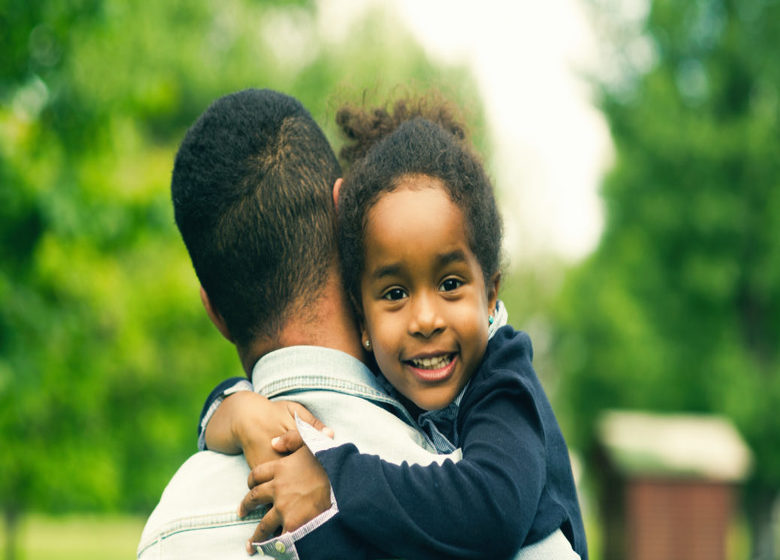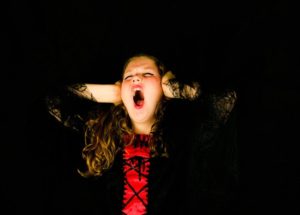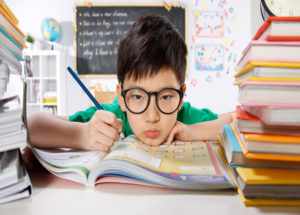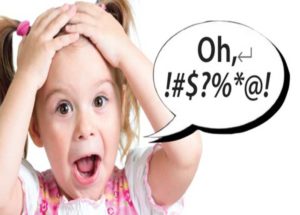Psychological Problems in Adopted Children
Does adoption jeopardize the mental and emotional health of children, making adoptees especially vulnerable to developmental, behavioral, and academic problems? Most people connected to adoption today think it does. Most Americans agree that adoption is a “risk factor,” according to public opinion polls.
The belief that adoption has a psychology of its own is recent, indebted to a tradition of controversial clinical studies linking adoption to psychopathology.
Adoption is a delicate process that comes with many different considerations. The relationship between an adopted child and his or her adopted parents is unique, and in many ways unlike that between parents and their biological children. It is difficult to predict how a child will adapt to his or her new home and family, so it is important to prepare for several different considerations about the mental and emotional wellness of adopted children.
Research has found that adopted children are at risk for suffering from mental health disorders. Twelve to 14 percent of adopted children in the United States between the ages of 8 and 18 are diagnosed with a mental health disorder each year. The adoption study also found that all adopted adolescents were significantly more likely to have had contact with a mental health professional than non-adoptees.
Adopted Child Syndrome
Adopted child syndrome is a controversial term that has been used to explain behaviors in adopted children that are claimed to be related to their adoptive status. Specifically, these include problems in bonding, attachment, lying, stealing, defiance of authority, and acts of violence. The term has never achieved acceptance in the professional community.
David Kirschner, who coined the term, says that most adoptees are not disturbed and that the syndrome only applies to “a small clinical subgroup”.
Researchers Brodizinsky, Schechter, and Henig find that in a review of the literature, generally children adopted before the age of six-months fare no differently than children raised with their biological parents.
(Read: Adopting a child isn’t that Bad)
Prominent Psychological Problems With Adopted Child:
1. Difficulties With Food
Being deprived of food at an early age, which happens to a high percentage of adopted children from impoverished nations (and a sizable number of children who have been in group homes), can lead to odd food-related behaviours. These include:
– Extreme fussiness. It may seem counter-intuitive that a child who was deprived of food will refuse to eat many foods when they are widely available, but the child may easily become overwhelmed, unable to handle all of the new foods being served. Give her time to get used to them: this finickiness will often pass.
– Overeating. On the other end of the spectrum, some children who have been deprived of food in the past will behave more as one might expect, gorging on food—sometimes to the point of vomiting. While this can be upsetting, like fussiness, it’s usually merely temporary; once the child sees that his or her food supply is not going to run out, he or she will begin to eat normally.
– Hoarding and hiding food. Children who do this are trying to ensure that they will have food security in the future, so while this behaviour may seem frustrating, it’s often best to let the child engage in it for a little while, until he or she learns that there is no cause to worry.
2. Feeling Of Rejection:
Your adopted child may suffer from the negative feeling of rejection, on learning that she is an adopted child. Your kid may think that her biological family didn’t like her or didn’t love her which pushed her into adoption. The feel of being ‘Left Out’ can affect your adopted kid’s progress and psychological health and development negatively. Feeling of rejection can affect the behavior of your child adversely, so you need to make your kid feel that she is an important part of your family.
3. Loss And Grief:
Loss and grief due to the feeling of abandonment is one of the prominent causes of the behavioral problem in adopted child. Disappointment due to loss of biological family may affect your adopted child adversely, and make her grieve for the loss of her biological family. Your kid may bug you with lots of questions as to why her biological parents let them go for adoption. Also, the adoptee may grieve the loss of their siblings, grandparents, friends, and other familiar environments.
4. Responding to Buried Trauma
Sometimes adopted children will display odd behaviours, usually avoiding specific places or things, as a result of negative past experiences. For example, some adopted children have been known to avoid entering cars of a certain colour as they associate them with being taken from one foster home to another.
If your child exhibits such behaviours, you should take him or her to see a trained professional; a therapist can get to the root of the behaviour and help the child to overcome it through understanding and desensitization.
5. Identity Queries:
Your adopted child may suffer from the problem of self-identification on learning that her adoption. Identity development can be more complicated in adopted kids. They may bug you with questions, such as who are their biological parents, where they originally belong to, who they resemble, did their biological parents bond with them, and similar queries. Your kid may also ask you about her biological family traditions and heritage.
6. Self-Esteem:
The sense of self-esteem of your adopted child relates to her sense of belonging, identity, and value and dignity. Several studies reveal that adopted kids suffer from low self-esteem, as they score lower on self-esteem than their non-adopted counterparts.
7. Genetic Problems:
Often, an adopted kid doesn’t have access to her biological or genetic family health information. So, if your adopted kid has a genetic history of any ailment or disorder, then your child may not have appropriate knowledge of it. Lack of genetic health history may affect from learning the cause of disorder in your adopted kid if she suffers from any, which eventually affect the right line of treatment.
If your adopted child suffers from any negative behavioral problems, then you need to deal with your child carefully and with love. Make sure your kid doesn’t feel left out in your family. Try to make your child feel that she is part and parcel of the family. Loving and caring your adopted child will help you tackle her behavioral problems effectively and promote her overall well-being significantly.
Identifying More Serious Problems
Adopted children sometimes go on to develop more serious behavioral and psychological issues as a result of early trauma, abuse, or deprivation. In other cases, as happens with non-adopted children, some adopted children may become troubled without a readily apparent cause.
Identifying these more serious problems begins with assessing their duration; almost all older adopted children will act out in the months after coming home as they wish to “test” their new parents, making sure that they will still be wanted if they behave badly. This is normal, and seldom necessitates the involvement of a therapist.
The range of signs that a child displays is another important indicator of a more serious problem; if a child exhibits just two or three of the signs listed below, the problem is likely temporary, whereas exhibiting three or more of these signs often means that the issue is serious and chronic in nature:
– Sudden changes in appetite;
– Changes in sleep habits;
– An inexplicable decline in his or her grades at school;
– Evasiveness;
– Poor hygiene;
– Heightened anxiety;
– Social isolation (or a sudden undesirable change in peer group);
– Loss of interest in favourite activities;
– Repetitive behaviours that last beyond the toddler years, such as rocking back and forth or head-banging;
– Violent outbursts or antisocial behaviour (stealing, setting fires, harming animals);
– Developmental delays;
– Self-injury;
– Substance abuse.
Factors Contributing to an adopted child’s risk of suffering from a mood or behavioral disorder
Several factors contribute to an adopted child’s risk of suffering from a mood or behavioral disorder, like:
- Age of adoption
- Where the child was adopted from
- Conditions of the foster home and family
- Whether the child has contact with his or her biological family members (Open Adoption)
- History of mental illness in biological family
These contributing factors directly affect the adopted child’s ability to attach and bond with his or her adopted parents. Issues with attachment are common, and are often a major contributing factor to the onset of mental health issues. For example, many adopted children suffer from reactive attachment disorder (RAD), which is a disorder in which a child is uncomfortable with and avoids being comforted by caretakers. Adopted children develop RAD as a result of not getting sufficient nurturing, comforting and consistent care while in foster care.
Children with RAD tend to suffer from:
- Self-esteem issues
- Anxiety
- Depression
- Self-harm
- Behavioral issues
- Academic struggles
- Difficulty building meaningful relationships
RAD and related struggles can have a major impact on an adopted child as he or she reaches young adulthood. Young adulthood is a critical time for discovering one’s identity, purpose, passions, and place in the world. As the adopted child grows, he or she begins to understand more about the world. With that understanding comes more questions. Some questions an adopted child may begin to think about are:
- Where did I come from?
- Why was I given up for adoption?
- What are my roots?
- Do I fit in here?
- Am I lovable?
- What is going to happen once I leave for college / enter the adult world?
Such questions cause stress, anxiety, and sometimes anger and depression. There may be resentment toward adopted or biological parents, or a poor sense of confidence and low self-esteem, which are triggered by the confusion behind these unanswered questions.
If your child needs a therapist, it’s essential that you find one who has an unbiased attitude towards adoption; some professionals take a negative view of adoption and will therefore incorrectly blame all of a child’s issues on being adopted. Look for a therapist who understands the unique challenges of adoption (and how different types of adoption—from a foster home, from an orphanage, or from infancy—affect a child) but who also honours the strength and positivity of the bonds forged in adoptive families.
Also read: Are your Children suffering from Behavioral Disorder?













